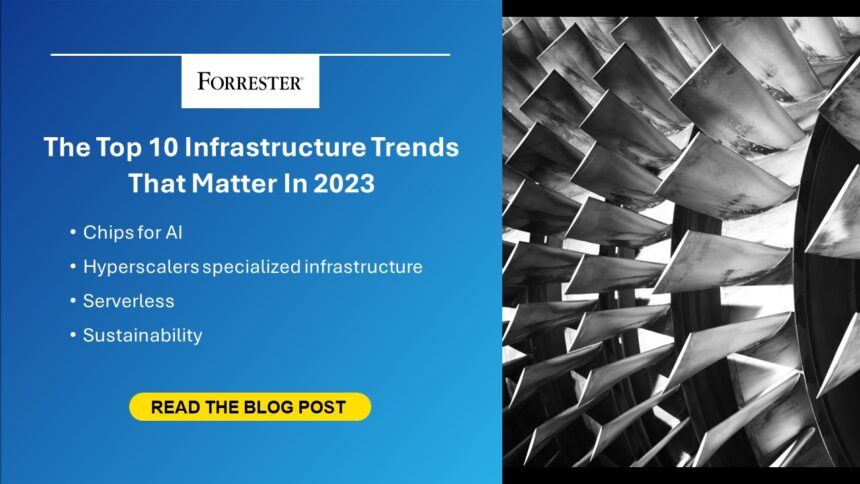I am thrilled to share that I recently published our “Top 10 Infrastructure Trends In 2023“. This is the first of what we are hoping will be a yearly report. I had the opportunity to work with many of my analyst peers to curate this list of today’s top trends. Infrastructure remains critical for enterprises in every industry and size throughout the world as it is a key enabler to their business outcomes. This list represents the most pressing and important trends that today’s infrastructure leaders need to be appraised of. Almost all our clients, today, are embarking on GenAI initiatives, expanding their cloud exposure, and testing new infrastructure types and subscription models.
To give you a taste of the full report, here is a preview of four of my favorite trends:
- Demand for AI-optimized infrastructure is running into chip shortages. Going into 2024, AI is all the rage and enterprises are scrambling to procure on-premises and cloud infrastructure to realize their AI ambitions. Much of this development revolves around scarce graphics processing units (GPUs). AI, and specifically generative AI, is driving demand for infrastructure harder than any other technology. Many enterprises will opt for cloud-based services because hyperscalers are usually better equipped to manage the massive capex and environmental requirements and your data teams are familiar with their platform. We recommend taking a long-term view in deciding the right platform and hosting option.
- Hyperscalers are targeting specialized infrastructure for differentiation. Even prior to the current AI buzz, hyperscalers were developing specialized chip designs and partnering with leading chip manufacturers. Some designed chipsets for tasks such as training, and inferencing, while others cater to use cases like video streaming or gaming, giving enterprises infrastructure options once considered inconceivable. In 2023, AI chips have taken the spotlight, leaving companies to determine the best fit for their AI use case and algorithm. We believe firms face the choice paradox.
- Serverless is mainstream – but focus is shifting to the edge and IoT. Serverless exemplifies the shift towards app-centric abstractions, enabling developers to build cloud-native apps without wrangling with infrastructure. The next frontier for serverless adoption is at the edge, where it is baked into many edge development platforms. The hyperscalers use micro-virtual machines (VMs) like AWS Firecracker to power cloud-native services. Firms are embracing edge technologies, starting with vertical use cases that solve core business challenges in their industry.
- Sustainability initiatives push infrastructure demands in new ways. Awareness of and demand for sustainability is increasing worldwide, especially as environmental, social, and governance reporting becomes key to company valuations and eligibility to bid on contracts. Firms increasingly recognize that sustainability programs increase revenue and improve reputation. Technology pros must report on the impact of energy consumption, pollution, climate change, waste, and natural resources from the hardware use in data centers, cloud, and at the edge. We recommend finding the best-fit sustainability management software solution.
Next Steps
To help you navigate the infrastructure options and take pragmatic decisions, you should:
- Read the report for more details – Top 10 Trends In Infrastructure | Forrester
- Schedule an inquiry or a guidance session with me or other co-authors.
- Explore the links to related research included below.
- Contact the Forrester account team, if you are not a Forrester client.
Here’s a few more of my latest reports:
- The New Economics Of On-Premises Infrastructure | Forrester
- Private Cloud Market Insights, 2023 | Forrester
- The State Of Infrastructure Automation, 2023 | Forrester
- Predictions 2024: Technology Infrastructure | Forrester








